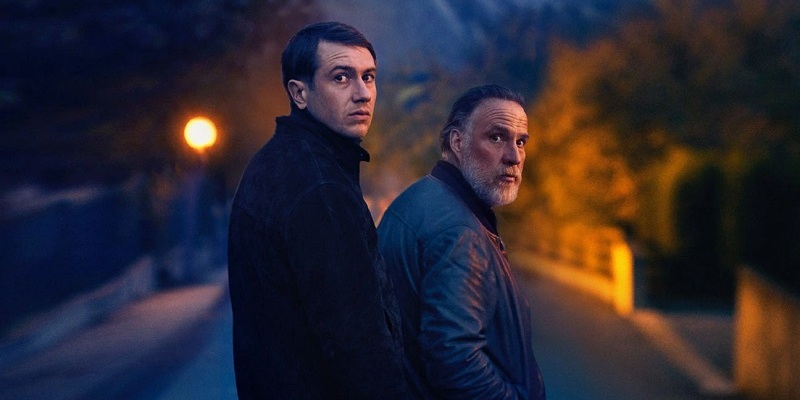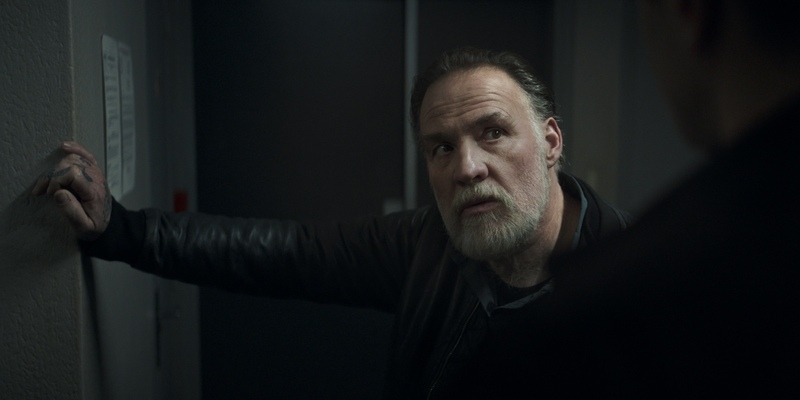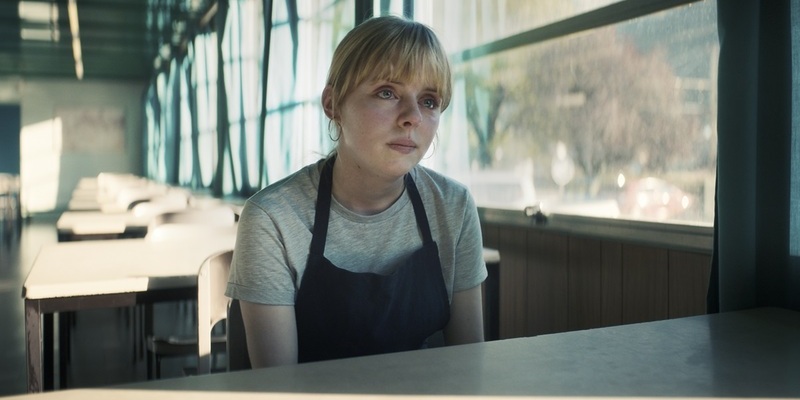
Review by
Eric Hillis
Directed by: Dominik Moll
Starring: Bastien Bouillon, Bouli Lanners, Anouk Grinberg, Théo Cholbi, Johann
Dionnet, Thibault Evrard, Julien Frison, Paul Jeanson, Mouna Soualem

Some thrillers opt for a whodunit approach, leaving the audience to
guess who the perpetrator of a particular crime might be among various
suspects. Others opt for the more Hitchcockian/Columbo method of
revealing the killer's identity early on in order to mine suspense from
the premise. Like David Fincher's Zodiac, Dominik Moll's The Night of the 12th is a
thriller that doesn't fit into either category as it's based on a real
life case that has never been solved.

We're told upfront that the film we're about to see is a fictionalised
version of the investigation of one of the 20% of French homicides that
go unsolved. The real life case was detailed by author Pauline Guéna as
one of several such cases in her book '18.3 – Une année à la PJ', a deep
dive into a year's worth of homicide investigations by the French
police.
21-year-old Clara (Lula Cotton-Frapier) leaves a party just
after 3am and is approached by a hooded and masked man who douses her in
flammable material before setting her alight. The following morning she
is found dead from her injuries. Assigned to the case are detectives
Yohan (Bastien Bouillon), a young taciturn, by-the-book type of
cop, and his veteran partner Marceau (Bouli Lanners), who has
seen it all and is bearing the emotional scars of both his grim
occupation and his failing marriage.

Though we know Yohan and Marceau will ultimately fail in their quest to
find Clara's killer, we're sucked into their investigation to such a
degree that we forget this detail. Every time a suspect is ruled out for
some reason, it comes as both a surprise and a disappointment. And the
suspects are numerous. Clara seems to have lead a sexually promiscuous
life, with a litany of past male lovers. Every one of them is a creep in
their own way, from the budding rapper who uploads a song to YouTube in
which he details the violence he wishes to enact upon her in revenge for
being dumped, to a basement-dwelling youngster who giggles like The
Joker while being questioned, to a weirdo who lives in a nearby shed, to
a brute with a history of domestic abuse - they're a reprehensible bunch
to a man. Nothing sticks to any of them however, to the frustration of
both the investigating cops and the scornful audience. When Marceau
loses his cool and begins beating on one of them, even the most ardent
ACAB types will be willing him on. Even if they didn't kill Clara, don't
these men deserve some sort of punishment, you might ask. There's a
saying often attributed to the Arab world that goes something like "Beat
your wife every day; if you don’t why, she will," and Moll's film almost
seems to argue for a gender reversal of this notion. "Perhaps all men
killed Clara," Yohan muses at one point.
The real life case occurred on the outskirts of Paris but Moll's
version takes place in the alpine city of the Grenoble. With the drama
playing out in the shadow of large mountains, and the recurring image of
a beautiful blond girl whose secret sexual life may have lead to her
death, it's impossible not to think of Twin Peaks as an
influence on Moll's film. David Lynch famously wanted Laura Palmer's
murder to never be solved, but was forced to acquiesce by the network.
In Moll's frustrating drama we can see the point Lynch was trying to
make by lining up so many suspects, none of whom were meant to be
identified as the sole killer. Girls like Laura and Clara are victims of
more than just a single assailant.

The crime at the centre of Moll's film also bears similarities to that
of Flavio Mogherini's 1977 Australian giallo
The Pyjama Girl Case, itself based on a famous unsolved murder. Unlike Lynch and Mogherini,
Moll opts not to imagine the final days of Clara, leaving us with more
images of her charred, lifeless body than the vibrant young woman we
briefly see in the opening. All we learn of Clara's life is through
lurid accounts from uncaring men, with her best friend, Stéphanie (Pauline Serieys), holding back details of her sex life in order to protect her from
what she views as the police's attempt to suggest she was "asking for
it." As we were lead to expect, the film ends on a glum note with
Clara's murder relegated to a growing pile of cold cases. We're left
with no idea of who killed her, or who she really was, but we know a
little more of the society that doomed her.

The Night of the 12th is on
UK/ROI VOD now.

